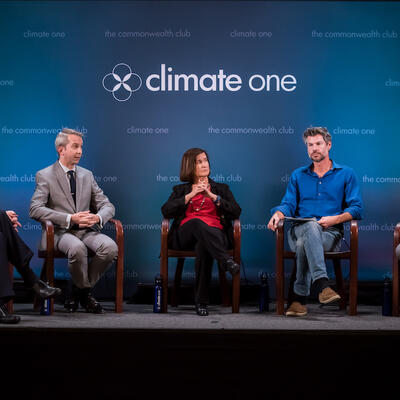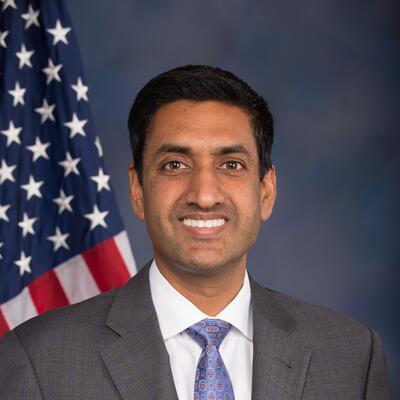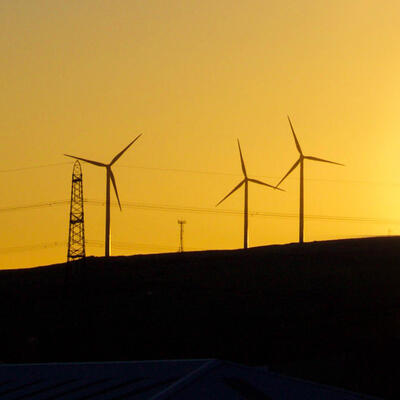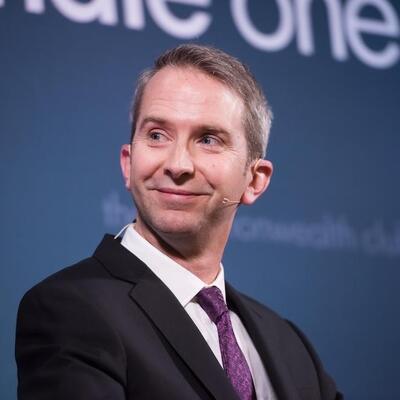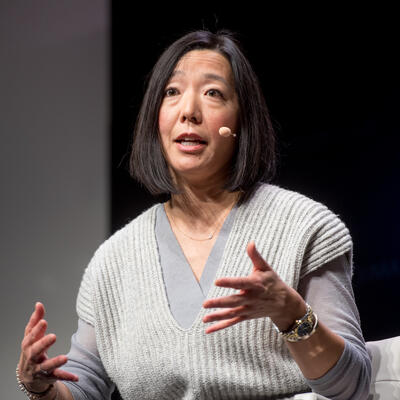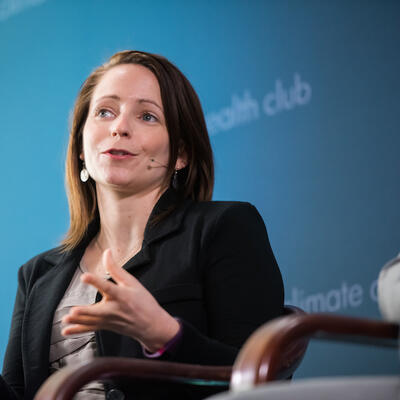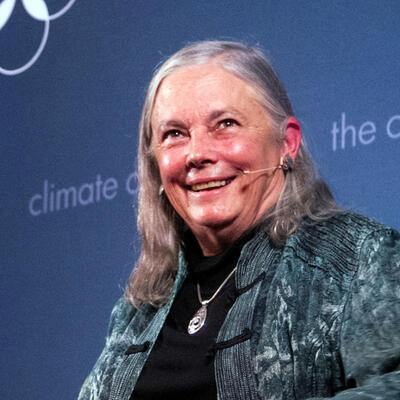
C1 Revue: The Future of Oil and Nuclear Power
Guests
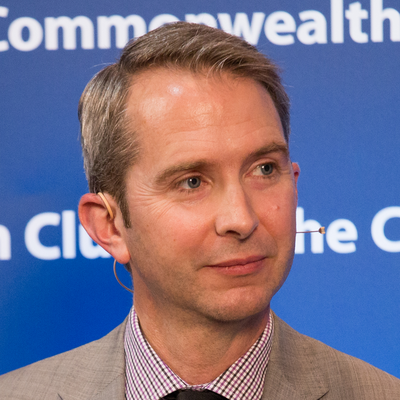
David R. Baker
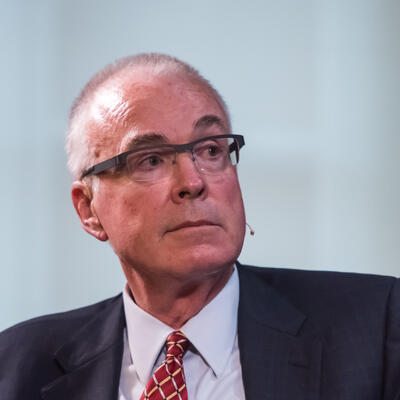
John Geesman
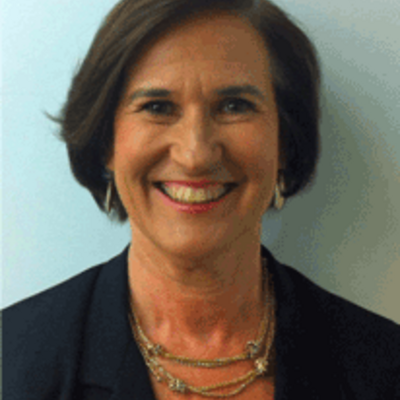
Dian Grueneich
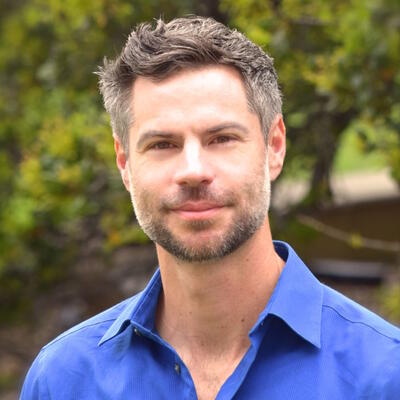
Michael Shellenberger
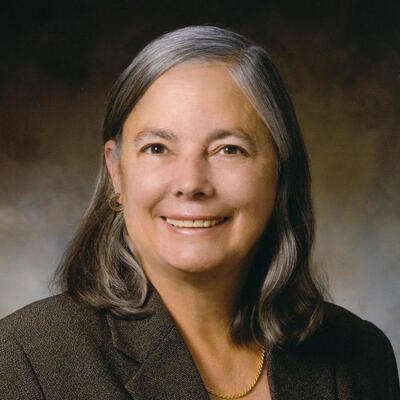
Fran Pavley
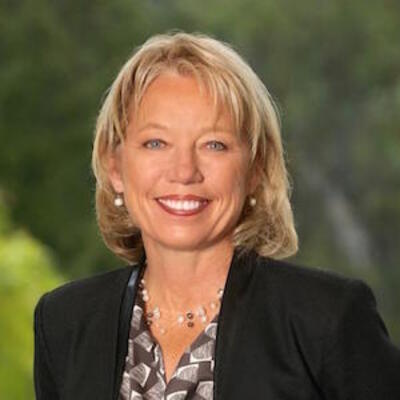
Catherine Reheis-Boyd
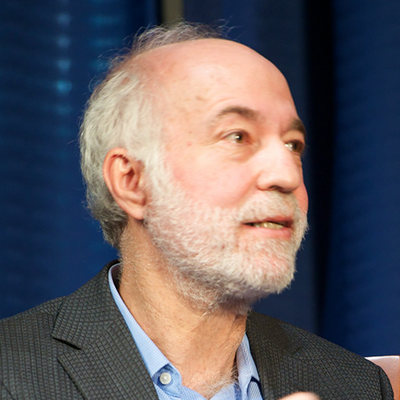
Dan Sperling
Summary
2016 began in the afterglow of the Paris climate accord, and ended with the triumph of a presidential candidate who has labeled climate change a hoax. So what will 2017 and the Trump administration mean for the future of clean energy? On today’s show we look ahead at how environmentally-conscious lawmakers and businesses might move forward now that Republicans control the White House and both chambers of Congress, and how big blue California might continue to lead the fight against climate change in spite of what happens in Washington.
David R. Baker, Energy Reporter, San Francisco Chronicle
John Geesman, Attorney, Dickson Geesman LLP
Dian Grueneich, Former Commissioner, California Public Utilities Commission
Michael Shellenberger, President, Environmental Progress
Fran Pavley, Senator, California State Senate
Catherine Reheis-Boyd, President, Western States Petroleum Association
Dan Sperling, Member, California Air Resources Board
Full Transcript
Announcer: This is Climate One, a conversation about powering America’s future. It’s been ten years since California Governor Arnold Schwarzenegger signed that state’s pioneering climate law, AB 32.
Schwarzenegger: When we sign this bill we will begin a bold, new era of environmental protection here in California that would change the course of history.
Announcer: A decade later, how are we doing?
Fran Pavley: Our economy has gotten bigger and emissions have gone down and we’re on track to meet our 2020 targets.
Announcer: California also recently announced plans to close its last remaining nuclear power plant. But will that ultimately reduce or increase carbon pollution?
Dian Grueneich: We continue to believe that the path forward for reducing our carbon emissions is to really increase how much renewables we have as well as energy efficiency.
Announcer: The Future of Oil and Nuclear Power. Up next on Climate One.
Announcer: Climate One is changing the conversation about America’s energy, economy and environment. I’m Devon Strolovitch. Climate One conversations – with oil companies and environmentalists, Republicans and Democrats – are recorded before a live audience and hosted by Greg Dalton.
Ten years ago, California Governor Arnold Schwarzenegger signed into law a pioneering climate bill to reduce carbon pollution across the state’s economy. The law known as AB 32 is arguably the most important piece of climate legislation in the country, and it put California at the forefront of the global move to protect the climate that supports our economy and lifestyles. But does also it risk putting California at a competitive disadvantage? On today’s program we explore the impact of AB 32 and other climate laws on the price of gasoline, electricity, jobs, innovation, and our way of life. How can densely-populated states like California lead the fight against climate disruption without disrupting their economic vitality?
Joining Greg today are three people with leading roles in the debate over finding that balance. State Senator Fran Pavley co-authored AB 32, and other laws regulating fracking and tailpipe emissions. Before her recent retirement, she led the successful effort to extend much of California's main climate law for another 10 years. Cathy Reheis-Boyd is president of the Western States Petroleum Association, which represents the oil industry in Arizona, California, Nevada, Oregon and Washington. And Dan Sperling is a member of the California Air Resources Board, the main state agency for regulating air quality and carbon pollution. He’s a transportation expert and founding director of the Institute for Transportation Studies at UC Davis.
Here's Greg taking the temperature on California’s climate law.
Music: Out
I want to go back to 10 years ago, on Treasure Island, where Governor Schwarzenegger signed AB 32, this California's main climate law. Let's hear what he had to say then.
Arnold Schwarzenegger: In a few minutes we will be signing Assembly Bill 32. When we sign this we will begin a bold, new era of environmental protection here in California that would change the course of history. In fact, we will create a whole new industry that will pump up our economy.
[Clip End]
Greg Dalton: Cathy Reheis-Boyd, a new law, pump up the economy. 10 years later, what’s been the impact?
Catherine Reheis-Boyd: So I mean, the way you’ve actually framed this conversation and I'm really happy to be here Greg with Senator Pavley and Dr. Sperling. We've been actually doing this since 2006 together. So it has been a while of working together on this very important issue. And the way you pose the question is, you know, has been helpful or hurtful. And frankly I think it's been both. On the helpful side I think it really has set a conversation for California that's a very important one, not only in the context of what we can do, but, you know, how that relates to things like the Paris agreement and things that the international community is looking at. But also as we look at the positive side of it, we also have to find a way to minimize as much as we can the cost of the program. Such that businesses and consumers can still, you know, have the quality of life that they have as we’re trying to move forward. So I sort of have yes on both sides of that question.
Greg Dalton: Done some good, done some bad. Senator Pavley, this is your baby, AB 32. Ten years in what's the scorecard?
Fran Pavley: Well, as a former teacher, I suppose I would give it an A-. That with a lot more work to be done obviously because this is going to take decades to get this right. Sometimes I look back and I think about what Governor Schwarzenegger said in his often times in his speeches, he would say, well we don't have to choose between a clean environment and a strong economy. We can have both and we can look at the math what's happened since AB 32 pass back in 2006. Our economy has gotten bigger and emissions have gone down and we’re on track to meet our 2020 targets. And some of the very popular programs that I know the public's been increasingly aware of and very supportive of our issues such as energy efficiency in buildings and appliances where you save money on utility bill plus reduce greenhouse gas emissions. We've done tremendous good work on cars, in fact, everyone's benefiting from greater fuel efficiency of cars. And it's now a national policy, it started as a state policy so we’re not going in alone on all these policies. Where by 2026, we’ll average 54.6 miles per gallon, saving people money at the pump been reducing greenhouse gas emissions. So my involvement in all this is making sure to the maximum extent possible. We have a win-win when reducing climate pollution, cleaning up the air because of the contributing factor and health impacts and also creating in-state jobs. And so it's going to take a lot of work by a lot of good people, lot of innovation. So I welcome this conversation as well.
Greg Dalton: Thank you Senator Pavley. Dan Sperling, she gives it an A- has it really helped or hurt the economy or is it a mixed bag as Cathy Reheis-Boyd said?
Dan Sperling: Well, it's so new. So there’s some pieces of it that have been here a little longer like the vehicle standards. But most of it, cap and trade, low carbon fuel standard, they’re just barely getting started. And perhaps the other one that's had an effect is the renewable portfolio standard requiring renewable energy for the electric utilities. But for the most part, we’re just getting started. And I think the bigger question is we have to do a lot. We have to do something. The science is overwhelming, climate change is a huge risk to the earth, to California. And the question is, how do we move forward aggressively? And as Cathy said, we want to do it smart. And as Fran said, there's lots of things low hanging fruit, like vehicle efficiency. We should have been doing that even if there was no climate change problem, no oil problem. We get somewhat, it cost about to get that 50 miles per gallon. It'll cost us a little over thousand dollars extra, but we get each consumer, will get back at least $3000 or $4000 extra for themselves. So forget about climate, air pollution everything else. Just on pure economics for the individual it's something really good.
Greg Dalton: Cathy Reheis-Boyd, let’s talk about there is growing in corporate America, growing recognition about climate change. Dan Sperling, just mentioned the energy efficiency for automobiles that reduces the demand for gasoline. Is that a good thing, is that something that Western states oil company support or is that something that you resist?
Catherine Reheis-Boyd: Well, I mean we've always supported energy efficiency and all of its forms. So and we’ve also always supported diversification. I mean it's never good to have all of your eggs in one basket. I mean none of us do that even in our stock portfolios, right. So I do think that it is a time where we have to look at all sources of energy as we go down this path together. And the one thing that I just get a little concerned about is that, you know, in California the leadership position that it has taken is a very important one. But we have to remember we’re still in a way less than 1% of the, you know, of the greenhouse gas emissions in the world. So what we do matters from a leadership standpoint, but we have to make sure that we don't take such economic burden on ourselves that all we do is put our state at a competitive disadvantage unless other people are gonna follow us. So it gets really important that whatever signals we’re sending to the rest of the world is because that's really important for the signal to the rest of the world. And we can lead but if, we have to have people follow us because this is a global pollutant, right it does matter where emissions come from and how we address it collectively in the globe. It’s planet issue, it's not in your backyard direct health issue.
Greg Dalton: Senator Pavley, when this was first envisioned 10 years ago, there were a number of Western states that are gonna join California and kind of the ideas that California can’t price itself out otherwise businesses will go to Nevada or Oregon, Utah, lower cost states. A lot of those states rolled off after elections, they’re no longer standing with California. Isn't it real that there is a risk to California can put itself at an economic disadvantage by pricing energy too high?
Fran Pavley: Well, we always have to be careful and we always look at any kind of leakage that means in simple terms, there's no point in having a carbon polluting industry just move across state lines for whatever reason, because it still affects the planet. But what's really been happening here sort of behind-the-scenes even though what you said was correct, is states are working together. For example, Oregon and Washington and British Columbia joined us with putting in EV infrastructure for electric cars throughout our state. I just got back from Mexico City. Amazing, the National Senate down there just unanimously passed the Paris court agreement, the president of Mexico, who I met with for an hour, over an hour at the National Palace. He and the president of United States and the Prime Minister of Canada all agreed to adopt California's now the national standard of more fuel-efficient cars. Those will all be used across all three countries. Governor Brown has been very involved in other states we call them sub-national states, provinces, others all adopting similar policies. We have an alternative fuel company that was so excited about SB 32 passing, because of the market signal that's being sent that they are investing in new people and they’ve taken over an old oil refinery. They have a long-term contract with United Airlines on biofuels. There's a lot of excitement and moving forward on all these technologies. I know we can do this.
Greg Dalton: Dan Sperling, biofuels were all the rage a few years ago and they haven't really -- they’ve been kind of disappointing actually. Having come through some the companies that started making alternative fuels are now making makeup because they can make more money at lower volumes. So, you know, tell us about the prospect for cellulosic biofuels that can go in existing pumps, existing tanks. They’ve been kind of a disappointment.
Dan Sperling: You know, before I answer that let me back up just a second because I want to talk about what California is doing, California's leadership. You know, Fran mentioned that California is not an island and the climate problem is a global problem, so what we do in terms of actual emission reductions in California has a small effect. But what we do in terms of policy innovation, what we do in terms of creating the industries and the innovation really is global. And we are creating the platform in California for economic growth and leadership by nurturing those technologies, encouraging of it, you know, solar technologies, the batteries, the vehicles, the teslas. And so, we are positioning ourselves for the future which, you know, is gonna be very different and we’re gonna be ready for it more than a lot of places.
Now, the biofuel is a big challenge and there are a lot of things that have happened faster than we expected including the battery has improved much faster than any of the experts thought, any of the companies thought. The biofuels has been just the opposite is that we thought the cellulosic biofuels, the biofuels made out of wood and grasses we thought we'd have it by now. The federal government adopted a requirement for 15 billion gallons of it by 2022. It’s not gonna happen. And I think mistakes were made, not enough was invested in developing the right plants that would be used in terms of processing it. There was a lot of hubris that we knew more than we knew and we had some venture capitalists and some others that were overselling it and hyping it.
And so now, I think we’re in a little retrenchment and I think we’re looking at it differently now. Now, we’re looking at, okay we got this big corn ethanol industry and you can think what you want of it but they are bringing some innovation into it. They are getting more efficient, they’re pulling the corn oil out of it to use as a diesel fuel, they’re starting to take some of the corncobs which is cellulose and processing it. So they're making -- it's kind of an incremental path. But I think what we really need now is the oil industry to get engaged. The oil industry is the only one with the resources, the capabilities to really scale it up to make the investments that are needed because otherwise it's not gonna happen fast.
Music: in
Announcer: We’re taking the temperature of California’s climate law at Climate One. Greg Dalton will continue his conversation in just a moment.
Music: in
STATION ID BREAK at (approximately 20’)
Music Bed -- 60 seconds
Announcer: We’re picking up the conversation now about AB 32 -- California’s pioneering climate law, with Dan Sperling, founding director of the Institute for Transportation Studies at UC Davis; Cathy Reheis-Boyd, President of the Western States Petroleum Association; and Fran Pavley, who co-authored AB 32, and was preparing to retire from the California State Senate when this program was recorded.
Here’s our host Greg Dalton.
Greg Dalton: We’re gonna go to our lightning round and ask a series of yes or no, quick association questions of our guests. So yes or no, Dan Sperling, electric vehicles will save the bacon of electric utilities otherwise caught in a death spiral?
Dan Sperling: No.
Greg Dalton: They won’t save the utilities. Cathy Reheis-Boyd, you are happy Senator Pavley is termed out of office?
[Laughter]
Catherine Reheis-Boyd: No. No.
Greg Dalton: Fran Pavley, oil companies extract fuel from the age of dinosaurs and if they don't adapt quickly some of them may become dinosaurs themselves?
Fran Pavley: True.
Greg Dalton: Cathy Reheis-Boyd, Tesla’s gigafactory for car batteries gives you heartburn?
Greg Dalton: Fran Pavley, it was a mistake for Climate One to host a conversation about California's climate action with four white people and no person of color?
Fran Pavley: No.
Greg Dalton: Some people on Twitter thought so. Dan Sperling, oil companies have borrowed the tobacco company playbook. The main plays in that book are deny, delay and generate doubt.
Dan Sperling: Largely, yes.
Greg Dalton: Cathy Reheis-Boyd, yes or no, white people in California breathe cleaner air near their homes than people of color?
Catherine Reheis-Boyd: Could be true.
Greg Dalton: Dan Sperling, when it comes to fighting public interest in cleaner fuels, Chevron is the new Exxon?
Dan Sperling: Well that implies a lot of things. Chevron has not been supportive of biofuels.
Greg Dalton: Senator Pavley, despite California's move to clean fuels oil companies are more powerful in the state legislature than 15 years ago?
Fran Pavley: Yes, true.
Greg Dalton: We are going to change this a little bit and just I wanna mention a word or phrase and you tell me what first pops into your mind. No filtering.
Catherine Reheis-Boyd: This is kind of fun.
[Laughter]
Greg Dalton: Cathy Reheis-Boyd, the new Chevy Bolt – with a B – EV was a 200-mile range and a $35,000 price tag.
Catherine Reheis-Boyd: What am I supposed to say, what pops in my mind?
Greg Dalton: Yeah, what do you think about the Chevy Bolt?
Catherine Reheis-Boyd: Interesting.
Greg Dalton: Fran Pavley, hamburgers.
Fran Pavley: Less beef.
Greg Dalton: Dan Sperling, high-speed rail.
Dan Sperling: Hopeful solution.
Greg Dalton: Cathy Reheis-Boyd, Volkswagen diesels.
Catherine Reheis-Boyd: Like them.
Greg Dalton: Governor Jerry Brown, for Cathy Reheis-Boyd.
Catherine Reheis-Boyd: Pragmatic.
Greg Dalton: Also last one for Cathy, not last one, another one for Cathy. Cathy, California's new law regulating cow burps and other certain super pollutants.
Catherine Reheis-Boyd: Tough.
Greg Dalton: Dan Sperling, the American Petroleum Institute.
Dan Sperling: Slowing things down.
Greg Dalton: Also for Dan Sperling. Fran Pavley’s legislative legacy.
Dan Sperling: Brilliant and long-lasting.
Greg Dalton: Fran Pavley, fracking.
Fran Pavley: It'll be phased out.
Greg Dalton: Also Fran Pavley, retirement.
Fran Pavley: Looking forward.
[Laughter]
Greg Dalton: And the last one for Cathy Reheis-Boyd. The Republican Party.
Catherine Reheis-Boyd: In transition.
[Laughter]
Greg Dalton: Alright, that’s the end. How they do? Let’s give them a round for getting through that.
[Applause]
Dan Sperling, tell us about Paris, you said earlier that California's leadership was significant. So Paris is this big deal, all the countries are on board for doing it. How does California matter there – as Cathy Reheis-Boyd said earlier, we’re only 1% of the problem?
Catherine Reheis-Boyd: Less than.
Dan Sperling: I was hoping you were doing part of the previous. I was gonna say great wine, cheese.
[Laughter]
Greg Dalton: Oh, Paris. Yeah, yeah.
Dan Sperling: More serious so. Well, I think California has played a huge role in one as a leader in influencing what happens in Washington, never mind elsewhere. You know, like I personally, I work with China on their development of a zero emission vehicle mandate for China. So we from California are having a lot of influence around the world and we give, I mean, for long time United States was kind of a laggard in addressing climate change, and I think now, you know, thanks in large part to California's role it's no longer seen that way in California, you know, when Governor Schwarzenegger and Governor Brown they go around the world and they speak and they encourage the sub nationals and their having a big influence. And Paris represents the nations of the world joining together and saying we've got a big problem. We've got to do something about it. And we used to hear all these stories about well, we’ll be disadvantaged relative to China but everyone's on board. China, you know, is investing more in renewable energy and is investing more in electric vehicles than we are. So, I mean, I don't buy the argument anymore that, you know, worrying about being disadvantaged. There are so many parts of the world that are moving forward aggressively, more aggressively than we are.
Greg Dalton: And one area that is pushing that is this increasing well, concern about the carbon budget, there’s a certain amount of carbon that we can burn to stay below with a redline the world community has drawn. We are already more than halfway there I think. At current rates we burn through that whole budget in about 10 years. Early last year we had Angus Gillespie, vice president for CO2 at Shell Oil here at Climate One for discussion on the future of oil. He had a very interesting point to make on what has been described as a carbon bubble. Let's listen to Angus Gillespie from Shell Oil.
[Clip]
[00:45:46] Angus Gillespie: So you’ve had a lot of talk recently about things like unbundleable carbon, the carbon bubble, and other things. This is the market the investors are starting to realize how significant a risk climate change can be to their investment stock. Now, this is a type of thing that starts to get real action because once senior executives see the impact on the stock price then you know real activity, long-term activity really starts to take traction. (00:46:13)
[Clip End]
Greg Dalton: That’s Angus Gillespie from Shell Oil. Catherine Reheis-Boyd, that's an oil executive saying that they’re concerned about these 30-year investments they’re making that they may not get their money back, they have to write down those investments if there’s a price on carbon or the economics are changing.
Catherine Reheis-Boyd: And I think one of the things that I'm very interested in hearing about from Senator Pavley and Dr. Sperling is this issue of how do you price carbon. I’m in an interesting position with my companies that I represent that have different views on market mechanisms and as you know we have two. We have a cap and trade program which is a market mechanism and we have a carbon tax which is a market mechanism. And for the audience the only difference is, is in cap and trade you certainly know the emission reductions you’re gonna make but you are not as certain about the price. On carbon tax, you know the price but you’re not as certain on the reductions you made, but they're both driven by the market. And I'm very curious where the conversation is gonna go on cap and trade versus the carbon tax because you’re looking up in Washington state. I mean, we have an initiative of 7-32 on the ballot right now that is a carbon tax. So you’ve got all these different things sort of swirling around on what is the right answer. I know the Air Resources Board certainly looked at a carbon tax early on. So I’m just sort of curious if I could just get their views on that versus cap and trade. I’m just fascinated by trade to figure it out.
Greg Dalton: Senator Pavley, California has chosen cap and trade. Secretary Shultz, some Republicans support a carbon tax. There are some rumors that a carbon fee may be introduced in the new Congress by Republicans. Your take on how that would affect California. (0:48:00)
Fran Pavley: It's been a fascinating discussion and I think we all agree you have to put a price on carbon and that's what we’re doing whether it's cap and trade. Here's where I have an issue with the carbon tax. It really is not a very progressive tax, it really disadvantages, you know, lower income people. It does send a price signal. But let's look at this. Right now, if oil companies are polluting, they’re buying allowances and we’re using it to reduce greenhouse gas emissions that we can quantify those reductions. A carbon tax, they're not paying a thing. You're paying it at the pump when you refill your car. It's the public that's paying it. So when we had this discussion a few years ago, Darrell Steinberg had authored a bill that was supported by the oil companies, they wanna shift it over there, so it does have a price signal. Some people prefer that. I think national policy, we should all get behind whichever direction that they so choose. But you need a combination of incentives and investments in order to reduce carbon emissions. I'm not sure carbon tax by itself is going to get the job done because of the cost shifting it's going to go to. It's not going to the polluter per se unless there’s a way to do that. It's going to the end-user.
Announcer: You’re listening to Climate One with Greg Dalton. Greg’s been talking with Fran Pavley, recently-retired California State Senator and co-author of AB 32; Cathy Reheis-Boyd, President of the Western States Petroleum Association; and Dan Sperling, founding director of the Institute for Transportation Studies at UC Davis.
We’d like to know what you think about California’s climate laws.
Our email is climateone@commonwealthclub.org.
Or join us on Twitter. Our handle is @climateone.
We turn now to a conversation about the future of nuclear energy in the fight against climate disruption. California’s energy utility, Pacific Gas & Electric, recently announced plans to close the Diablo Canyon nuclear power plant -- the last remaining nuclear plant in the state -- and to replace its electricity with renewable solar and wind power. But some argue nuclear is key to a clean energy future, and that the push to phase it out is the result of mis-information and fear-mongering. In this part of the program, we’ll ask how nuclear power fits into the push for clean energy, and whether the closing of Diablo Canyon and other nuclear plants ultimately reduces or increases carbon pollution.
Joining Greg are four guests with differing views on nuclear power in the age of climate disruption. David Baker is a reporter for the San Francisco Chronicle, where he covers Pacific Gas & Electric, or PG&E, which is one of the greenest electric utilities in the country. John Geesman is former executive director of the California Energy Commission. He’s a legal advisor to the Alliance for Nuclear Responsibility, an anti-atomic group that supports PG&E's plan to close Diablo Canyon. Dian Grueneich is a former Commissioner of the California Public Utilities Commission and is now a Senior Research Scholar at the Precourt Institute for Energy at Stanford. And Michael Shellenberger is President of Environmental Progress, a pro-nuclear advocacy group.
Here’s our conversation about the end of the age of atomic energy in California.
Greg Dalton: David Baker, let's begin with you. Set the context in terms of powering the California economy. How big a deal is this, shutting down Diablo Canyon, which is 20% of PG&E's power?
David Baker: It's quite a big deal. Not just in terms of PG&E, but in the entire states. The state had up until a couple years ago two nuclear power plants running. And then in 2012, one of them closed down because it had a little bit of radioactive steam that leaked out of a particular part. And it turned out that the plant had just spent a whole lot of money on new equipment that was badly designed or just not working properly. And rather than go through the whole process of trying to keep it open relicensing and all, its owners decided to close it down. So that left us with just one plant, Diablo Canyon. And to give you a sense of how big the plant is in terms of its importance to the state. Last year it was 9% more than 9% of all the electricity that was generated within California's borders so all of that coming out this one plant. So it was a bit of a bombshell when PG&E announced that rather than going for extending the licenses and keeping it open another 20 years up until 2045, they were going to agree to close it down when its final license expires in 2025. And they say that they can do this and replace as much power from the plant that as they need to replace with energy efficiency, solar, wind and some energy storage. Still need to find out exactly how they plan to do that. But they have not quite a decade to do it. So it's a huge change if it happens.
Greg Dalton: I spoke with Bill Manheim, who is legal counsel for energy supply of PG&E. He talked about why they're closing Diablo Canyon. Let's hear from Bill Mannheim.
[Audio Playback]
Bill Manheim: The underpinning of PG&E's decision not to relicense Diablo Canyon is really in California's existing green energy policies which are really visionary. But they are seeking to double energy efficiency by 2030, and increase renewable power to 50% by that time. That displaces the need for much of Diablo Canyon’s energy. It's a business decision that was driven by the reality that we no longer need by 2030 the output of Diablo Canyon and that from a policy perspective and from an economic perspective, it was better to replace the portion that is needed for our customers with energy efficiency and renewables.
Greg Dalton: That’s Bill Manheim from PG&E. Michael Shellenberger, he said they don't need the power, they’re gonna replace it, what’s your response?
Michael Shellenberger: Well I mean last week we were in New York State, where they’ve just set a new example for how to deal with climate change. New York has a huge amount of its power came from nuclear, it became the first state to recognize nuclear for its climate benefits. So New York is a climate leader. California tries to take credit as a climate leader but in fact our emissions have declined slower than the national average. If this proposal goes forward, emissions will go up the equivalent of adding 1.3 million cars to the road. It will be replaced by natural gas. There's literally nothing in the proposal that requires that Diablo be replaced by any amount of clean power. In fact, on both of the key elements it just says, we’ll do a bunch of energy efficiency. Now I think the people in California didn’t sign up for that. I think we signed up for clean power, for clean energy that doesn't destroy our beautiful desert landscapes. We didn't sign up for big natural gas leakages. But that's exactly what this proposal would lead to. So I think it’s really a testament to how far lost the environmental movement is that so many of these groups have signed off on this deal that would increase methane leaks, increase carbon pollution. Make the state incredibly vulnerably dependent on natural gas, including power from out-of-state. When San Onofre closed as David Baker was describing. We we’re 45% natural gas in California. After it closed, we’re 61% natural gas. If they succeed with this proposal to close Diablo Canyon, we will become 70% dependent on natural gas. That is a fuel that is just notorious for having huge price spikes. So what we’re looking at is a big increase in carbon emissions, big increases in electricity prices and really I have to say just the corruption of a basic positive vision that California's had as an environmental and climate leader.
Greg Dalton: John Geesman, you’re a part of this deal with PG&E. Your response to the charge that there's no guarantee in the proposal that it will be renewable power that it could be natural gas. Does the proposal say what Diablo Canyon electricity has to be replaced with it?
John Geesman: It most certainly does. And I don't think Mike has closely read it if he actually feels that way. There are very clear tranches of new supply that the proposal specifies. Now, I will acknowledge those tranches only address about one third of the Diablo Canyon output. But the key story here is, and you heard Bill Mannheim said it. PG&E is very uncertain as to what their load will be in 2025, 2026. And I think that's something that all of us ought to ponder pretty carefully. PG&E cannot predict right now what the presence of community choice aggregators will be in its market and what the presence of rooftop solar will be and they've tried to thwart both. So acknowledging the uncertainty stemming from both of those sources from a business standpoint, I don't think PG&E had much choice.
Greg Dalton: Dian Grueneich, let’s get you in here. You’ve been on the Public Utilities Commission. One of the interesting things here is that the state is predicting declining electricity use. There’s a shrinking market here and it seems to be that there is some scramble of what's going on and how to supply that shrinking market, is that right?
Dian Grueneich: Let me just say that I find the situation and heaven forbid about 40 years involved in energy in California, about the most interesting one we've ever tackled or been faced with. And part of what’s so interesting is that everywhere else that we’ve dealt with nuclear it's been a very sudden closing. What David said, you know, you discover that unfortunately a whole bunch of parts for nuclear power plant aren't working. And literally everybody scrambled what are we going to do. And that did result in an agreement. 50% of the replacement power would come from natural gas. That needless to say, had a lot of people upset but in this situation we actually have seven years to plan. And that to me is what so extraordinary. The same thing with New York, the economics of the market there the plant operators no longer were making money. And shareholders do not just donate, let's keep a nuclear power plant in operation. So it's a very different situation. And with all of our policies what we’re striving for is the dramatic change in how we’re all gonna get electricity. Our number one priority in California is energy efficiency. And when I was a commissioner, I had the honor being lead on efficiency. We doubled how much we would all invest in energy efficiency. Last year our legislature passed a new law that said we’re gonna double pass that. And so it does mean that overall, we use less energy and that's bringing up this fascinating situation a very large power plant like Diablo Canyon that’s running just fine economic. You just may not need that in the future these very large-scale plants. Especially when you have people saying let's put PV on our homes or let's have them in our communities. And so it's a situation we've never really been faced with before.
Greg Dalton: David Baker, what this tells us about what PG&E and others think about the future of California, that’s gonna power California's economy. The future of energy system, we’ve had some really big plants, billion-dollar plants and now we have a distributed system much like computers went from mainframes to PCs and now phones. We’re gonna have energy created closer to where it’s used. What does this tell us about the future?
David Baker: That's a pretty good way of putting it actually. It does tell us a couple things about what, where PG&E and also the people who manage the state’s electricity grid think things are gonna be 10, 15 years down the road. And it’s not necessarily that the amount of electricity we’ll use overall will shrink, but it's not gonna grow very much. I was visiting this organization based in Folsom, the California Independent System Operator that the people actually run the grid. And they are projecting that you look out 10 years from now and it's basically gonna be about the same electricity demand in the state that we have right now, but with a much higher percentage of solar, bit higher percentage of wind. And a lot of fast ramping natural gas plants they can move up and down as the rest of the system needs it. A big plant like Diablo which was designed to go up to full power and just stay there day and night is kind of a tough fit for all of that. And PG&E clearly is seeing the same thing because you got to remember PG&E’s CEO is a big believer in nuclear power. He used to lead the nuclear power industry's main lobbying group in the United States. He is a big believer in this technology. And this is a big asset for this company, you know, they own this thing at a time when California forced them and the other utilities to sell most of their power plants years ago. They would not want to give this up if they thought there was a good economic case to be made for keeping it open. But keeping it open isn't free it's I think the operating costs. At one point it’s over like 600 million a year or something like that. So if you can't run at full tilt, it’s not gonna pencil out.
Greg Dalton: Michael Shellenberger, your response to these big nuclear plants don't fit into the future we’re going into.
Michael Shellenberger: I mean it’s funny, right because it's like, I thought we cared about climate change, right? So if you’re going to take 9% of our power away, why are you going to take it away from a clean energy source? Why not go from 61% to 51% natural gas? Why remove 20%, a full one fifth of our zero carbon power? The only reason to do this because you think there's something really scary or dangerous about nuclear power. But the medical journals, the British medical journal Lancet finds that nuclear is the safest way to generate reliable power. There's been a fear mongering campaign against this plant, including by John's organization for almost 40 years. That’s what underlying it. And you know, with all due respect David, you make it sound like the market is sort of operating without, you know, on its own. The market is constructed by policies. So what PG&E very clearly said is that if we have to get to 50% renewables it's very hard to do that if nuclear is not counted as renewables. They went to the legislature and said, we'd like to build account nuclear renewables and they were denied. They were lobbied against by all the so-called environmental groups, the antinuclear groups that wanted to keep nuclear out of that definition of renewables. So if you care about climate change, there is no excuse to do this, other than an underlying paranoia about our largest source of zero carbon power.
Music: In
You're listening to a Climate One conversation about the future of nuclear power in the fight against climate disruption. Greg Dalton will be back with his guests in just a moment.
Music: Out
Welcome back. Greg Dalton is talking with David Baker, energy reporter for the San Francisco Chronicle. John Geesman, former executive director of the California Energy Commission. Dian Grueneich, former Commissioner of the California Public Utilities Commission. And Michael Shellenberger, President of the pro-nuclear advocacy group, Environmental Progress.
Here’s Greg.
Greg Dalton: We’re gonna go to our lightning round at Climate One. We’re talking about nuclear energy and climate change. These are a series of yes or no questions for our guests. Starting with John Geesman, yes or no, the nuclear energy industry in America is dying a slow death?
John Geesman: Yes.
Greg Dalton: Dian Grueneich, more people have died working in coal mines than working in nuclear power plants?
Dian Grueneich: Yes. Is there a right or wrong to these?
Greg Dalton: Michael Shellenberger, coal-fired electricity damages public health far more than nuclear power?
Michael Shellenberger: Oh it’s easy. Yes, of course.
Greg Dalton: David Baker, the nuclear power industry has a poor record of controlling costs?
David Baker: Yes.
Greg Dalton: Michael Shellenberger, nuclear energy provides a shrinking percentage of global energy supply?
Michael Shellenberger: Unfortunately, that is true.
Greg Dalton: Dian Grueneich, the plan to close Diablo Canyon is not a done deal and could come unhinged?
Dian Grueneich: Yes.
Greg Dalton: Also for Dian Grueneich. You get a two-fer here, nuclear energy is renewable energy.
Dian Grueneich: Depends. Defined by policy makers in this world.
Greg Dalton: In this case in California no, okay. John Geesman, the only U.S. states building new nuclear power plants today are ones where the utility companies have regulators on a leash, which means they can pass huge cost on the customers?
John Geesman: They also have their hands in your pocket for advance construction funding. That will be yes.
Greg Dalton: There’s some plants under construction in Georgia where the ratepayers are already paying for the plants that are not operating yet. Dian Grueneich, nuclear power plants will continue to be built in Asia and the Middle East?
Dian Grueneich: Yes.
Greg Dalton: John Geesman, the United States should continue research into new forms of nuclear power?
John Geesman: Yes.
Greg Dalton: Michael Shellenberger, nuclear waste is the best kind of waste?
Michael Shellenberger: Yes.
[Laughter]
In terms of electricity production.
Greg Dalton: That means you're willing to carry it out to the curb in your slippers and robe on Sunday morning?
Michael Shellenberger: Every morning I do that in fact, yeah, whenever I have the chance.
Greg Dalton: David Baker, some liberals oppose nuclear power blindly and ideologically unencumbered by facts?
David Baker: First clause yes, second clause no.
Greg Dalton: John Geesman, that is similar to conservatives who deny climate science blindly and ideologically unencumbered by facts?
John Geesman: Yes.
Greg Dalton: Michael Shellenberger, movies such as the China Syndrome, starring Jack Lemmon and Jane Fonda and Silkwood, starring Cher and Meryl Streep, did more to shape public perception about nuclear power than most environmental groups?
Michael Shellenberger: Yeah, I don't think so.
Greg Dalton: David Baker, last question. Small modular nuclear reactors are like hydrogen. They are the fuel of the future and they always will be?
David Baker: Sure seems that way.
Greg Dalton: Alright, that ends our lighting round. How do you think they did? I think they did pretty well.
[Applause]
Let’s talk about the waste, Michael Shellenberger, nuclear waste this country doesn't have a good solution. Yucca Mountain was a political decision to put in a place where there’s already a nuclear industry. How are we gonna solve the waste problem?
Michael Shellenberger: I mean let’s talk about it. I mean, look the waste -- first of all people don’t know what it is. So what gets called waste is the spent fuel. At least the high -level stuff that everyone worries about, but it’s the spent fuel. Most of the energy is still in it because our reactors are not yet ready, they will be in 100 years or whatever when they can burn all of the energy up. The waste just sits there it's in solid form. You ask people what they worry about, they kind of go, oh my gosh and where it will be transported and then it’ll fall off the truck and then green liquid will spill into the river. So first of all, it’s not green and it’s not liquid, it’s solid. It's sitting right there on site and it's fine. If you take all of the waste that nuclear power the United States has produced since we began producing power from nuclear, it would all fit on a football field, about 50 or 60 feet high. So there's hardly any of it. As an environmentalist, I worry about so many of the kinds of ways like all the plastic islands of waste in the ocean or, you know, the chemical waste or the carbon dioxide waste that we call pollution and we put up into the air. No form of making power better internalizes its waste than nuclear. So there’s tiny amounts of it, it's easy to handle and manage. It’s just become a kind of bogeyman for people.
Greg Dalton: Dian Grueneich, is the waste no big problem it's fine where it is?
Dian Grueneich: Absolutely not. It’s a very, very significant concern. And it's actually not just the United States. And this is a thing to really think about. The question that you would ask me is nuclear going to be continued to be built basically outside of the United States. Yes, this is where Asia, this is where India and this is where some of the other areas of the world that politically are very worrisome are getting their power from. And we have not solved the waste problem in 40 years. And it is, Michael was right it’s a political problem. If we got past that then we could start to focus on can we have the science work. We’d like to see that that happened. But for waste, it's really what's happening outside of the United States where you don't have anywhere near the protections or concerns. And this is where collectively we’ve all got to figure out what we’re gonna do about this.
Greg Dalton: The other concern is cost. David Baker, how much is this gonna cost and who's gonna pay?
David Baker: We’re gonna pay. The estimated cost right now is 3.8 billion to decommission the plants. That may go higher, they've increased the estimate a couple of times over the last few years. We have already, all of us in this room been paying into that fund though probably most people don't realize it. As soon as a nuclear plant starts up the people who are and the customers the utility ratepayers, start paying bit by bit into a decommissioning fund. Now there is a bit of a shortfall between now and 2025. PG&E wants to raise rates by roughly or bills I think roughly $.50 per month over the next few years to sort of close the gap of what they think it's gonna cost. But the total right now, yeah, it's 3.8.
Greg Dalton: Let’s go to our audience questions. Welcome to Climate One.
Female Participant: Hi. In the U.S. there is some, from my understanding there are some nuclear power plants that are still running despite the fact that the safety regulations are outdated. So how can we ensure that if there are nuclear power plants that our government and that our safety regulations stay up-to-date.
Michael Shellenberger: That is what the Nuclear Regulatory Commission does. It does update, and I mean you’re talking about what is considered one of the best regulatory agencies in the world. I mean it is staffed by independent regulators that are overseen by an inspector general. This is, it is not, does not report to the president, does not report to congress, it’s, it's bipartisan. I mean this is the thing about the Nuclear Regulatory Commission. It is the gold standard of regulation around the world. So what you’re arguing this was not the case.
Greg Dalton: John Geesman.
John Geesman: Very few people unaffiliated with the nuclear industry feel positively toward the NRC. Virtually everyone else that has had any dealings whatsoever with the NRC consider them as Barack Obama said in 2008, a captive agency.
Greg Dalton: Let’s go to our next question at Climate One.
Male Participant: This is something that really comes up in Germany. I think tying this to California, is the priority in California's policies more renewables or greenhouse gas abatement?
Greg Dalton: Dian Grueneich.
Dian Grueneich: That’s a great question, it’s both. We continue to believe that the path forward for reducing our carbon emissions is to really increase how much renewables we have as well as energy efficiency. We still have on the books a law that does not allow us to build new nuclear power plants until we have an approved method for disposing of the highly radioactive waste. So if we were to bring on anymore nuclear power plant, we would actually have a change in the law.
Greg Dalton: Next question. Welcome to Climate One.
Male Participant: Thank you. It’s worth noting the nuclear power can actually load-follow while wind and solar can't. So it’s a purely economic argument requiring Diablo Canyon to stay on 100% that's the only way that they can make it economically viable. What if this could be accomplished with diversions of energy to non-grid applications would that provide reasoning for not closing Diablo, such as production of hydrogen or electrical cars?
Michael Shellenberger: Or desalination, right? Of course, I mean if you really cared about climate, you would not be shutting down 1/5 of your clean power. If there's too much solar coming onto the grid, which was happening this year we had, the grid operators had to stop all the solar coming in from the farms and we didn't need it. You would be setting up ourselves to go and get hydrogen cars, electric cars, that's not what this proposal does, it takes away a full fifth of our zero carbon-based load.
Greg Dalton: Welcome to Climate One. We’re talking about nuclear power and Diablo Canyon.
Male Participant: A lot of people are asking whether or not they’re gonna be able to replace all of its power with renewables. But I think that's missing the point. Even if they could do that that's not acceptable, you know, how is it acceptable to spend all that time, money and effort like 15 years or so and all this money just to replace one non-fossil source with another. In other words, just to tread water on climate change. These are not the actions of a society or a state that really cares about global warming.
Greg Dalton: Okay, we have to wrap it. John Geesman.
John Geesman: Let me say something as an energy planner. I’ve done that twice in my life. Once as an executive director of the energy commission in the 70s and later as a member of the energy commission when Arnold Schwarzenegger was governor. And it's really important from the state standpoint to recognize how hard it is to build infrastructure. And a key takeaway from confronting that toughness is find where the path of least resistance lies. Figure out what the public wants and give them some of that. Now all these community choice aggregation, organizations form, not a single one has organized around the principle of we want more nuclear power in our supply system. Mike, why don’t you organize? (01:12:31)
Michael Shellenberger: I would love to, that’s what we’re doing. I mean look, you guys has spent 40 years fear mongering on completely baseless grounds. So I think it's understandable that people think nuclear power is something that it’s not. This is the first time there’s been a civil society movement for this technology, it’s early days, our organization is seven months old. So, you know, come and let's talk in 40 years and let’s see how we do. I think that in the long-term the society bends towards truth and science and away from hysterical fear mongering.
Greg Dalton: We are out of time. We have to end with one quick question. One quick question for each of you. John Geesman, what are you doing to reduce your own personal carbon footprint?
John Geesman: I replaced my 297,000 mile Prius that got approximately 40 miles a gallon with a new Prius that gets a little more than 62 miles a gallon. It was an emotional process. I was committed to it in the same way that many people are committed to Diablo Canyon. But ultimately it was just gonna take too much money to keep the car up to repair and you know I improved its miles per gallon by 50% by making the new investment.
Greg Dalton: Why didn’t you buy pure electric and you could run on Diablo Canyon?
John Geesman: Doesn't fit my driver profile.
Greg Dalton: Okay.
John Geesman: Believe me, I calculated it.
Greg Dalton: David Baker, your carbon footprint, quickly.
David Baker: It’s mostly about, I’m an apartment dweller here in San Francisco. So basically, I have switched out all the lights and I make sure that we don't do anything unnecessary in terms of turning them on. However, I don't control the heat in my building. I don't control pretty much anything other than that and how much natural gas I use at the stove. So there’s not a lot I can do. I do however stick with Muni no matter how many times it has betrayed me.
[Laughter]
Greg Dalton: Dian Grueneich.
Dian Grueneich: My husband got my Fitbit for Christmas. So I'm doing more walking and less driving.
Greg Dalton: Michael Shellenberger.
Michael Shellenberger: I live in a really old house. I keep it well-maintained, highly efficient. I drive a really old car, a really old Honda car that's also very efficient, keep it maintained. But the most important thing I do is I defend our largest source of clean power and technology that is the most important environmental technology of the century.
[Applause]
Music: In
Greg Dalton: Greg Dalton has been discussing clean energy and the future of nuclear power with Michael Shellenberger, President of the pro-nuclear advocacy group Environmental Progress; Dian Grueneich, former Commissioner of the California Public Utilities Commission; David Baker, energy reporter for the San Francisco Chronicle; and John Geesman, former executive director of the California Energy Commission.
To hear all our Climate One conversations, subscribe to our free podcast at our website: climate-one.org, where you’ll also find photos, video clips and more.
Please join us next time for another Climate One discussion about powering America’s future.
[Applause]
Greg Dalton: Climate One is the sustainability initiative at The Commonwealth Club of California. Greg Dalton is our Executive Producer and Host. Jane Ann Chien [[Chen]] is the producer. Kelli Pennington directs our audience engagement. The audio engineer is William Blum [[BLOOM]]. I’m Devon Strolovitch, the editor. The Commonwealth Club CEO is Dr. Gloria Duffy.
Climate One is presented in association with KQED Public Radio.
Music: Out
